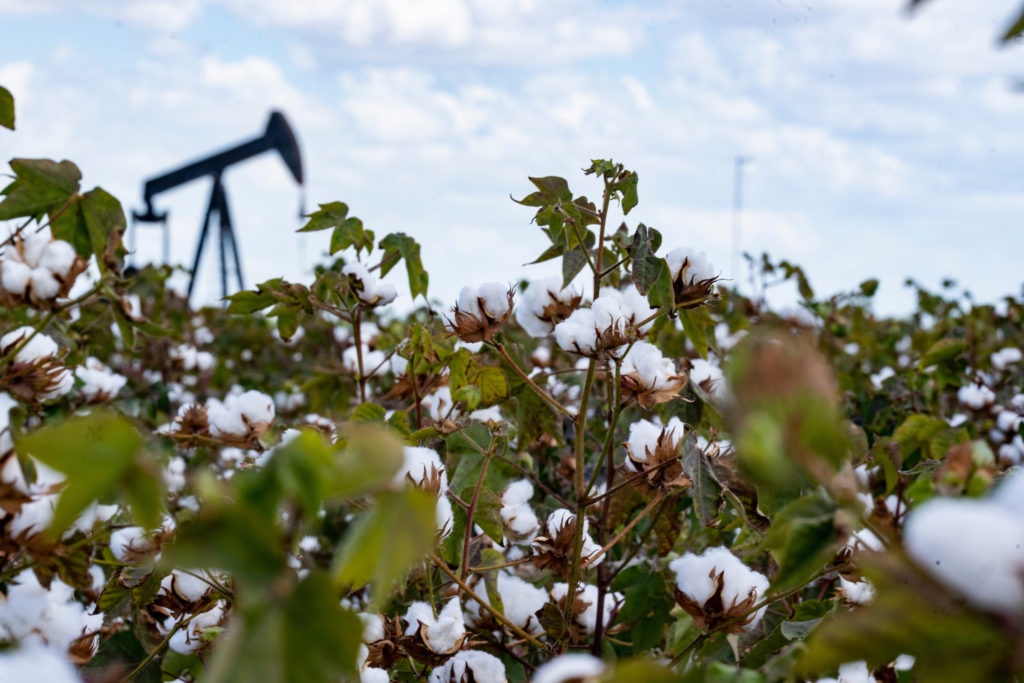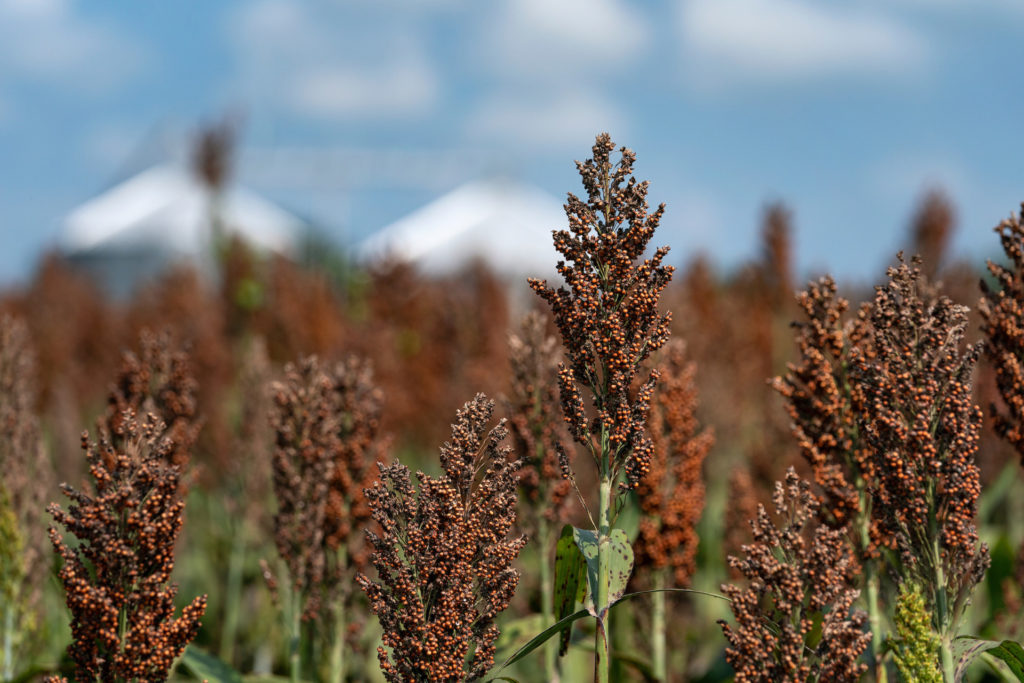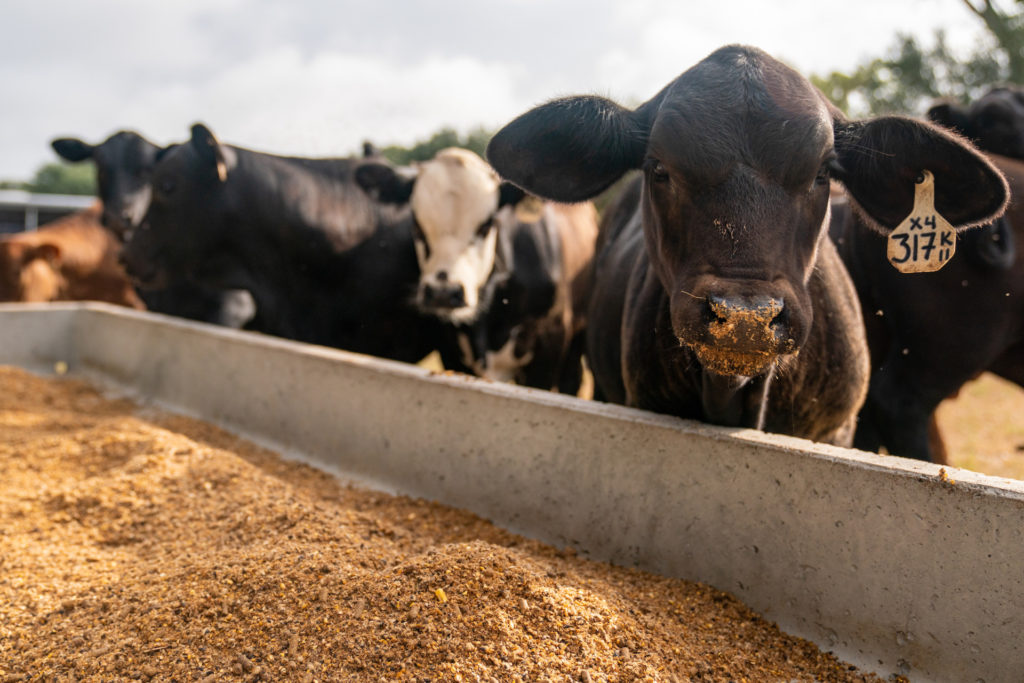Texas A&M AgriLife to lead historic investment in Texas’ efforts to become ‘climate-smart’
Texas A&M AgriLife Research receives largest competitive grant in its history
Texas A&M AgriLife Research is anticipating the largest competitive grant in the organization’s history, up to $65 million, to execute a five-year multi-commodity project to work with Texas’ large agricultural sector on expanding climate-smart agriculture and forestry practices.

The grants are not just historic for The Texas A&M University System, but for the nation, as part of a federal investment in 70 partnerships recently announced by the U.S. Department of Agriculture.
According to the USDA announcement, these federal projects will expand markets for climate-smart commodities, leverage the greenhouse gas benefits of climate-smart commodity production, and provide direct, meaningful benefits to production agriculture, including for small and underserved producers.
“We are proud to lead this major effort,” said Chancellor John Sharp. “The diversity of Texas’ climates, soils and agriculture allows a carefully crafted Texas Climate-Smart Initiative to serve as a model for future climate-smart programs nationwide. This grant further cements Texas A&M as the No. 1 research university in Texas and the Southwest.”
“Production agriculture is the backbone of the Texas economy,” said Jeffrey W. Savell, Ph.D., vice chancellor and dean for Agriculture and Life Sciences. “This grant proves that when we assemble a team of expert researchers and leaders, while simultaneously staying focused on being responsive to the needs of Texas and key priority areas, that real magic can happen. We’re proud to be creating meaningful solutions for the people of Texas.”
Project partners will be tasked with providing technical and financial assistance to producers to implement climate-smart production practices on a voluntary basis on working lands.
“Sustainable production systems that strengthen economies and bolster human health are cornerstone priorities for our research enterprise,” said Cliff Lamb, Ph.D., director of AgriLife Research. “Over the next five years, we will build on all the competitive advantages that make AgriLife Research the premier agency to lead a research initiative of this magnitude in Texas.”
Texas A&M AgriLife’s internal members for this initiative include AgriLife Research, Texas A&M AgriLife Extension Service, Texas A&M Forest Service and the Texas A&M College of Agriculture and Life Sciences.

For The Texas Climate-Smart Initiative, AgriLife Research will partner with the Texas Soil and Water Conservation Board, Prairie View A&M University, University of Texas – Rio Grande Valley, Tarleton State University, BCarbon, Nori, Plains Cotton Growers Association, Texas Wheat Producers Board, Texas Corn Producers Board, Texas Sorghum Producers Board, Texas Rice Producers Board, U.S. Rice Producers Association, Texas Organic Farmers and Gardeners Association, Texas International Produce Association, Texas Citrus Mutual, Texas Pecan Growers Association, Texas Small Farmers and Ranchers Organization, 100Ranchers, Texas Cattle Feeders Association, Texas Association of Dairymen, Texas Poultry Federation, Texas Forestry Association, Texas Chapter of National Women in Agriculture, Global Revive, Small Producers Initiative and American Plant Food.
Additional commodity-specific funding awarded to Texas A&M AgriLife Research for projects relating to climate-smart production
Texas A&M AgriLife also will serve as a major contributor to four other partnership projects totaling $265 million that focus on cotton, beef and bison production, and sorghum systems:

- U.S. Climate-Smart Cotton Program, led by US Cotton Trust Protocol: This project, with potential funding up to $90 million, will build markets for climate-smart cotton and aid more than 1,000 cotton farmers, including historically underserved cotton producers, across the country.
- Climate-Smart Cotton through a Sustainable & Innovative Supply Chain Approach, led by ECOM USA, LLC: This project, with potential funding of $30 million, will strive to implement methods to restore soil and ecosystem health in cotton production through regenerative farming and best practices based on specific regions and needs.
- Climate-Smart Beef and Bison Commodities, led by South Dakota State University: This project, with potential funding up to $80 million, will create stronger market opportunities for beef and bison producers, educate producers on practices best suited for their operations and manage large-scale data.
- National Sorghum Producers Partnerships for Climate-Smart Commodities Project, led by National Sorghum Producers Association: This project, with potential funding up to $65 million, plans to implement climate-smart production practices across hundreds of thousands of acres of sorghum working lands over a five-year period, with the goal to reduce hundreds of millions of pounds of carbon emissions and develop markets for sorghum as a climate-smart commodity.
For a comprehensive listing of projects and participating organizations included, visit: https://www.usda.gov/climate-solutions/climate-smart-commodities/projects.


